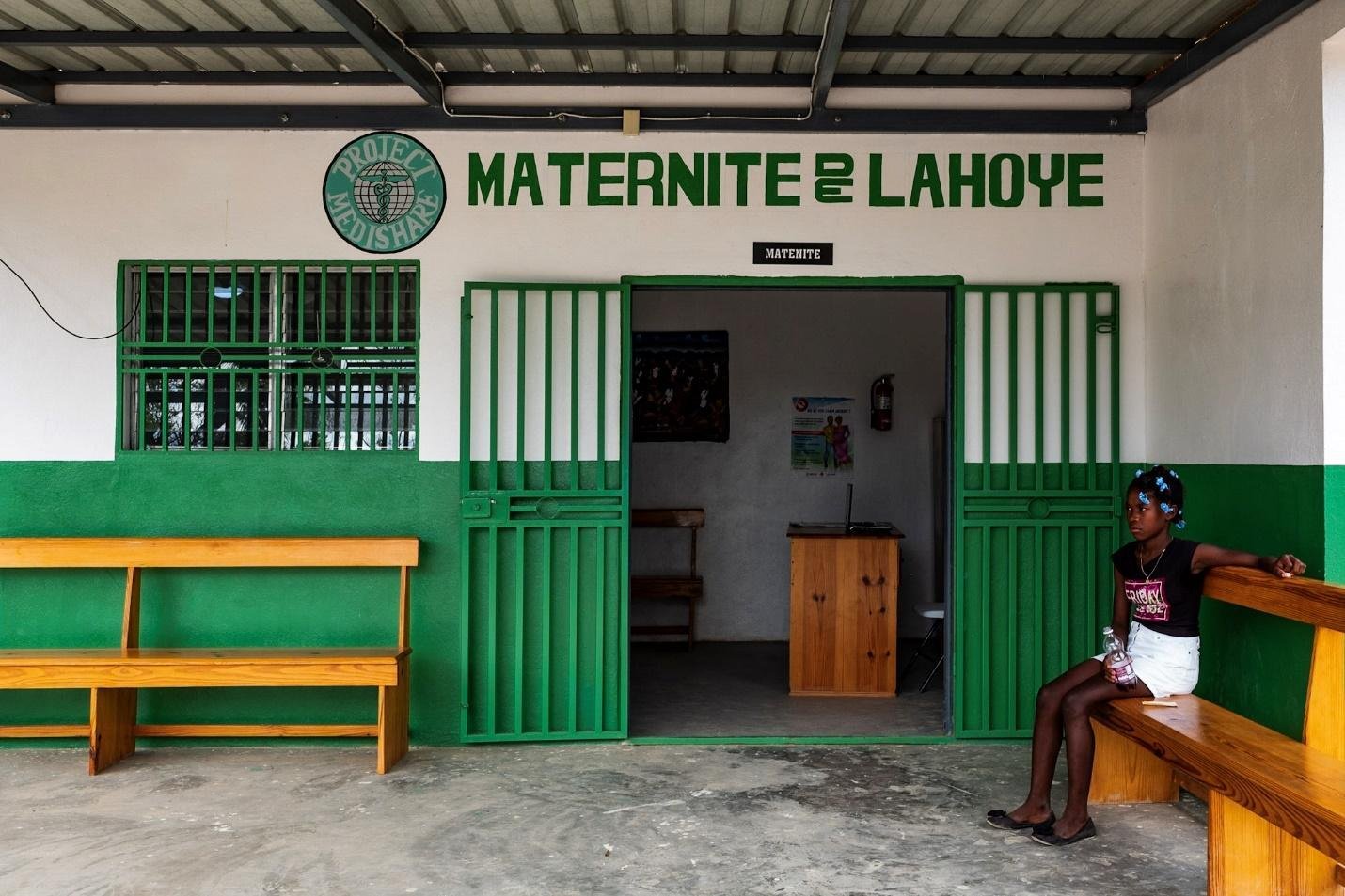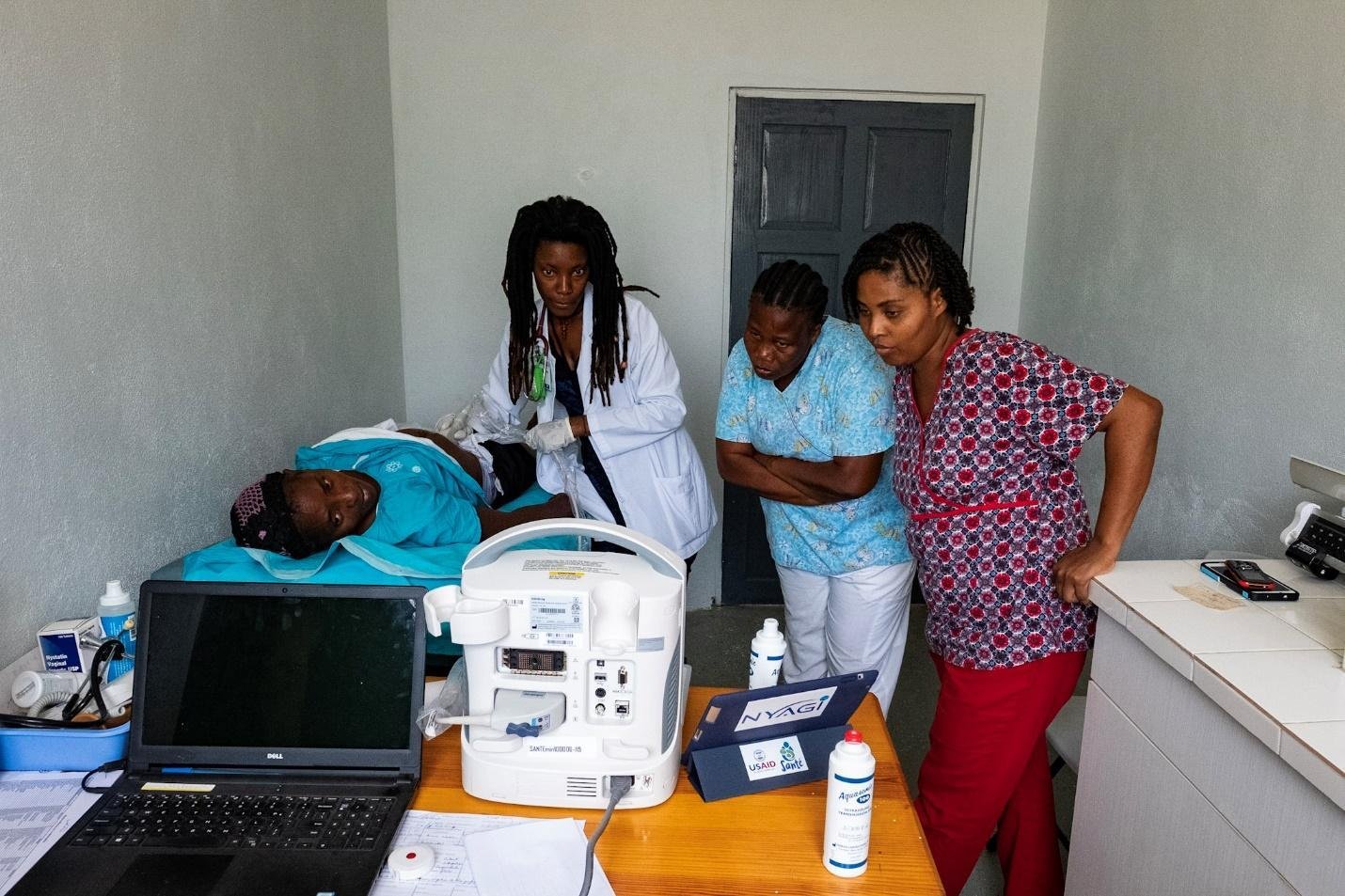Dr. Darline Molin Dol, A Beacon of Hope for Maternal Health in Haiti
In 2020, UNDP’s global Human Development Index ranked Haiti 163rd out of 191 countries and territories. Two years later, the country remains the poorest in Latin America and the Caribbean (LAC) and amongst the poorest in the world, with approximately 60% of its population living below the World Bank poverty line of $2.15 per person per day.
Dr. Darline Molin Dol at La Hoye Clinic.
Enter Haitian-born Dr. Darline Molin Dol, a smart, vibrant, modest, and dedicated young professional who graduated in 2012 as a physician from Universidad Tecnologica de Santiago in the Dominican Republic. She spent a few years working at Marmont Clinic in Haiti’s Haute Plateau after which she joined Projet Medishare Centre de Sant/Maternite de La Hoye Clinic and Maternity Center in 2016 as Medical Supervisor. La Hoye Clinic is located in a rural village near Haiti’s border with the Dominican Republic.
For the Love of Country and Fellow Humans
Dr. Dol completed NYAGI’s ultrasound diagnostic training in July 2019 and through a USAID grant administered by CARIS, her clinic received an ultrasound machine which she started using three months later. More than 60% of women in La Hoye still give birth at home in less than ideal – and at times unsanitary – conditions. The maternity center at La Hoye Clinic aims to reduce Haiti’s maternal and infant mortality rates, the highest in the Western hemisphere, by constantly striving to ensure that women in rural communities can access quality maternal health services.
While she is based in Haiti’s capital, Dr. Dol spends half of her time (2 weeks each month) at a village clinic in La Hoye (3 hours northeast of Port-au-Prince), run by Project Medishare. It is a grueling schedule any way you slice it, but, says Darline, “I really love my job and my country, and I am so glad to be able to help others in the medical field because life is so precious and everyone deserves a better life”, she says in a quiet confident voice.
“Medicine is my passion. I really, really love what I am doing.”
Maternité de La Hoye serves a rural population of more than 15,000 people in Haiti’s Central Plateau. (Photo Credit: Jason Houston)
La Hoye is the only clinic serving a 15,000-strong population spread out over 68 localities. Its staff complement includes five doctors and 15 nurses and midwives. They see approximately 40 patients daily, and spend anywhere between 15-30 minutes per visit, depending on the reason for the visit. On average, Dr. Dol conducts two ultrasound exams each day on individuals who typically hear about this – Point of Care diagnostic capability – in educational sessions at the clinic or by word of mouth. The sonogram service is currently offered free to patients.
Prenatal Ultrasound: a Ray of Hope for Pregnant Women in the Last Mile
If the exam identifies any concerns/abnormalities, the patient is referred to a regional clinic with higher level medical services. Dr. Dol refers to the specific example of a woman, four months pregnant, with a low placenta. Since this condition often leads to the death of mother and baby, the patient was referred to a gynecologist for follow up care. Before the arrival of ultrasound technology at the clinic, life-threatening conditions – like a low placenta – were not easily detected. Case in point, a pregnant woman who presented with eclampsia at the clinic the previous year was taken to the hospital in Hinche, 35 kilometers away, where she and her baby died a few hours after arrival.
Dr. Daline Molin Dol conducting an ultrasound exam at Maternite de La Hoye, explains the process to attentive medical staff. (Photo Credit: Jason Houston)
In accordance with standard practice, Dr. Dol conducts the ultrasound exams typically in the presence of one or more members of the clinic’s medical staff who are eager to learn from her. She is equally excited about sharing her newly-acquired ultrasound skills, doing her part to bring the benefits of prenatal ultrasound services to as many women as she can reach – especially in rural Haiti where access is absent or limited at best.
Community of Case, a few miles from Dr. Molin Dol’s clinic in La Hoye, Haiti. (Photo Credit: Jason Houston).
Community of Case, a few miles from Dr. Molin Dol’s clinic in La Hoye, Haiti. (Photo Credit: Jason Houston).
Community of Case, a few miles from Dr. Molin Dol’s clinic in La Hoye, Haiti. (Photo Credit: Jason Houston).






